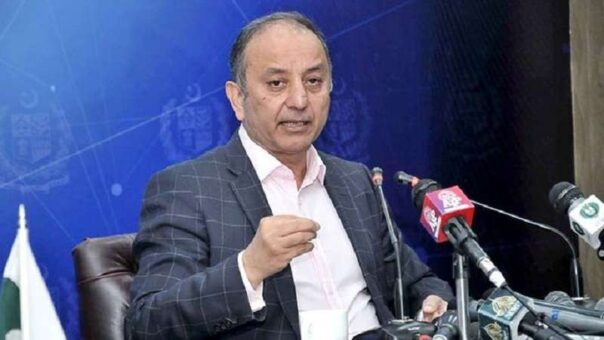Islamabad: In a bid to tackle the persistent dry outs in the petroleum sector, the government of Pakistan has unveiled a new policy known as the “bonded warehouse.”
Dr. Musadik Malik, the Minister of State for Petroleum, announced the policy during a press conference on Wednesday, highlighting its potential to resolve issues related to oil shortages and promote a more competitive market.
Under the bonded warehouse policy, foreign companies engaged in legal oil business worldwide will have the opportunity to construct warehouses for oil storage in major cities across Pakistan. This move aims to not only bring in foreign exchange reserves but also ensure a continuous supply of petrol and diesel in the country. Furthermore, the policy seeks to break the monopoly held by a few oil marketing companies that have been accused of creating artificial oil shortages for personal gain and discouraging illegal hoarding practices.
Dr. Musadik emphasized that the government is committed to implementing comprehensive measures to stabilize or gradually lower energy prices, including those of petroleum, gas, and electricity. He elaborated that foreign companies opting to store petroleum and diesel in the bonded warehouses would be required to register their businesses in Pakistan and open accounts with local commercial banks. This would facilitate direct business transactions in US dollars or Pakistani rupees, thus alleviating the burden of LC (Letters of Credit) confirmation and reducing pressure on the country’s foreign reserves. Additionally, the initiative aims to eliminate LC charges that are currently passed on to end consumers.
The Minister of State for Petroleum also highlighted the positive impact of the bonded warehouse policy on small filling stations, which often face significant challenges during periods of oil scarcity. With access to oil from the bonded warehouses, these stations will be able to continue their operations smoothly.
Dr. Musadik took the opportunity to extend Eid greetings and urged the public to set aside political discussions temporarily, stating, “It’s Eid festivity, so it is the responsibility of the government to give hope to the people.” He further addressed criticism from the PTI (Pakistan Tehreek-e-Insaf) regarding the Russian oil agreement, stating that with the second oil shipment from Russia reaching Pakistan, the concerns raised by the opposition have been put to rest. Furthermore, he mentioned a recent deal with Azerbaijan for inexpensive gas, emphasizing that the government has secured reliable energy sources to address gas shortages, particularly during the winter season.
In line with the government’s commitment to promoting renewable energy, Dr. Musadik revealed that the Prime Minister has launched four solar energy projects with a cumulative capacity of 10,000 megawatts. Additionally, the Prime Minister has directed major petroleum companies to devise comprehensive plans for transitioning toward renewable energy, including green hydrogen and green ammonia.
The introduction of the bonded warehouse policy represents a significant step forward in resolving the dry outs in the petroleum sector, promoting competition, and ensuring a steady supply of oil in Pakistan. The government’s focus on renewable energy projects further demonstrates its commitment to sustainable and environmentally friendly solutions for the country’s energy needs.
